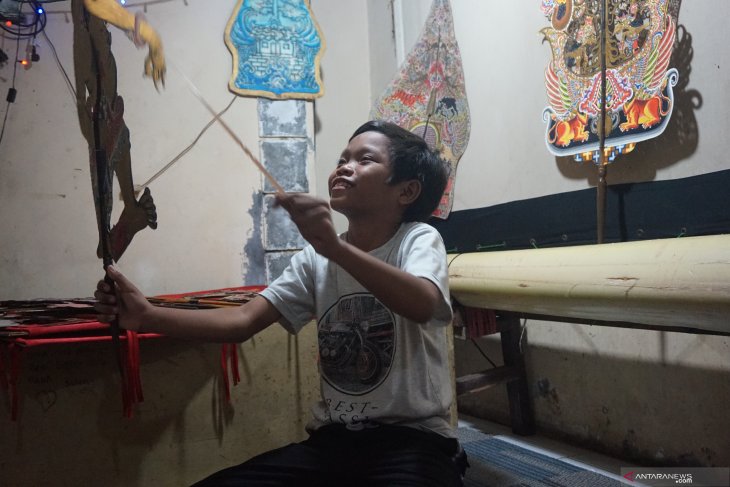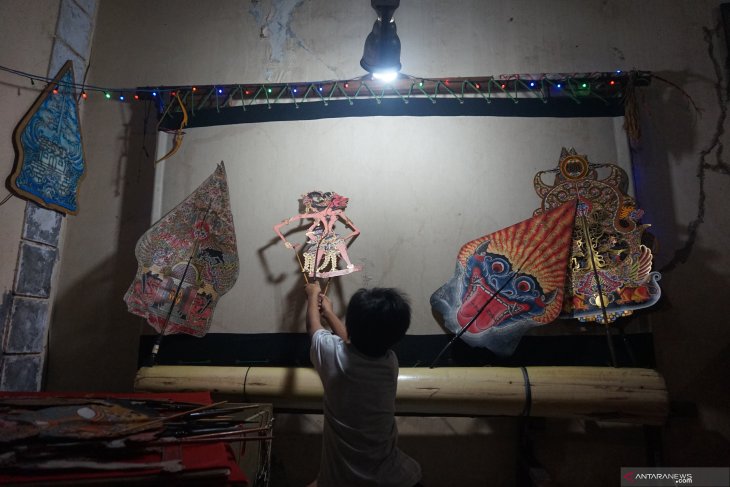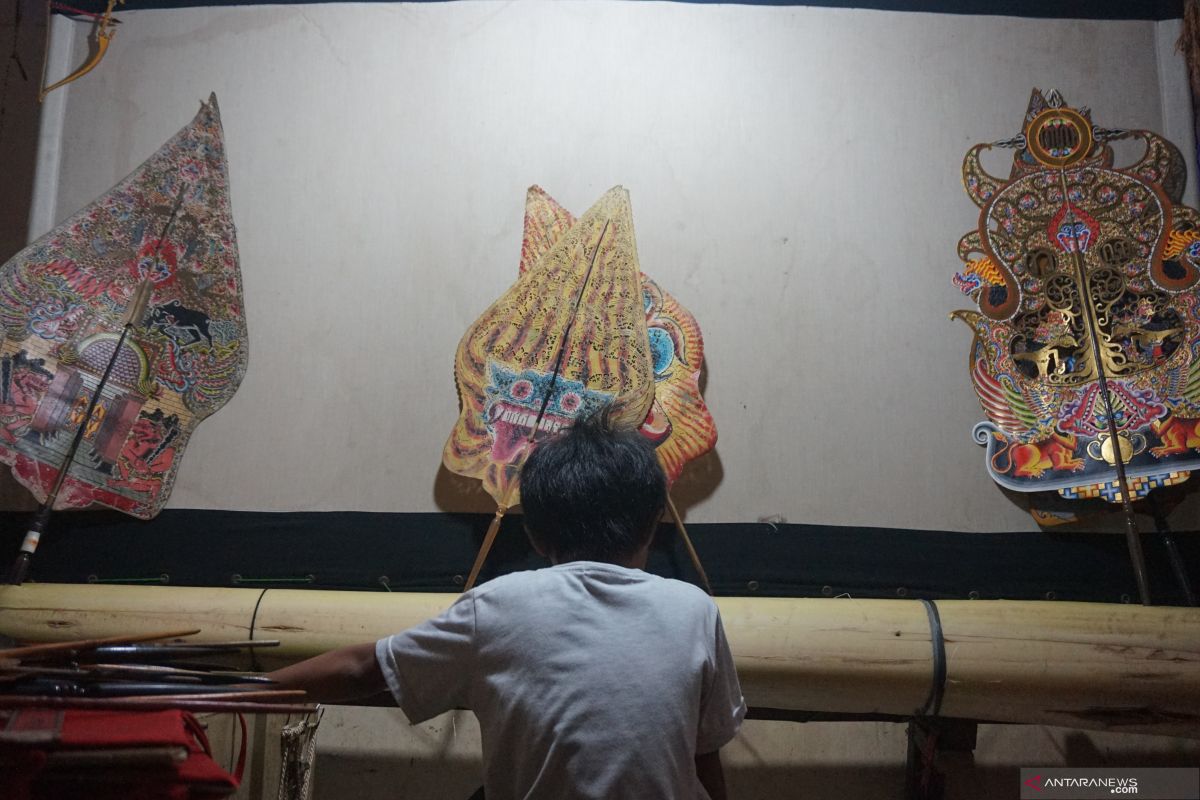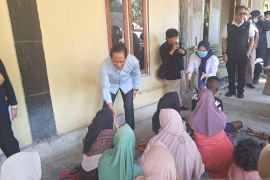Stories and tales are told through vibrant screens, equipped with sophisticated speakers that deliver crisp sounds, making them the compact devices that could serve up as an endless source of entertainment and with it addiction that could at times be alarming cause of concern.
In a nook of Jakarta’s eastern district of Cipayung, 10-year-old Rakha Triyawibawa prefers a more traditional way of storytelling, one involving shadows, rapid movements, and lengthy dialogues in traditional Javanese language. It had been passed down generations long before him and known as Wayang Kulit or shadow puppets.
During a visit to him on a summer holiday evening, he swung the puppets across a homemade screen while pounding on a wooden block called gedog that made heavy thud sounds and jangling on the metal keprak that generated chiming noises that resemble a clamorous wind chime.
The simultaneous movements, from both his hands and feet, complemented the dialog that he was reading out in Javanese language, as he recited the tale of the mighty Gatotkaca. All sounds together created an atmosphere that could only be found in shadow puppet shows.
Wayang Kulit refers to puppets made of primarily leather and manipulated with stick handles. They are prevalent mainly in Indonesia’s islands of Java and Bali as a means of telling tales usually drawn from the Ramayana or the Mahabharata and Serat Menak, replete with morality, at times mythical content.
The acts, lasting for hours, generally portray battles between good and evil, with good always winning over evil at the end of the story.
Wayang is often said to have existed in Indonesia before the arrival of Hinduism and was adapted to promulgate Muslim teachings and beliefs in the country later on.
Passion for culture

Sri Winarti, mother of the 10-year-old, said that she had been taking her youngest child to shadow puppet shows since he was three, as he had been showing keen interest in the cultural heritage around the time.
As a child born and raised in the metropolitan city of Jakarta, the process of acquiring the skills of a shadow puppeteer, known as dalang, is a time-consuming one, as the plays are told in traditional Javanese language.
Such challenge to learn the language and master the skills, however, never withered his passion to learn to play the wayang characters. He would often spend school holidays to practice his skills and participate in young dalang competitions.
Seeing Rakha’s inexorable passion and keenness to become a puppeteer, his parents then began allowing him to gradually build a collection of shadow puppet characters and built him a stage of his own using a white sheet as a screen, spotlights, and a banana tree stump to where he could stick his characters.
As his collection of characters grew bigger, he not only got better at practicing his shadow puppet playing skills but he also gained a broader understanding of the wayang characters and their distinct qualities.
“My favorite character is Hanoman, as he is brave and strong. In wayang, even the evil characters have good qualities, one of them is Buto (the giant), he has virtue in him. He is loyal to the king, even Gatotkaca’s soldiers are Butos,” he stated.
Taking it into adulthood

Triyawibawa aspires to continue to pursue his path to becoming a shadow puppeteer despite other dreams he has set for himself, including to become a military apparatus.
His mentor, long-time shadow puppeteer Purwanto, supported his ambitions to become a servant of the nation with the skills of a storyteller. He believed that the cultural heritage needs to be preserved and passed down to the subsequent generations, as the tradition of becoming a shadow puppeteer had been handed down to him from his great-grandfather in the family tree.
He is optimistic that his apprentice would be able to reach the milestone set for any puppeteer, playing the acts all night long. With rapid technological advancements, Purwanto also expressed hope that Triyawibawa would become more creative in performing acts adopted from folk stories by using equipment, such as colorful lights and smoke machines.
Despite the modernization of shadow puppet performances, he is also optimistic of dalangs, such as Triyawibawa, continuing to incorporate guidance, wisdom, and teachings in each performance in order to preserve the vital role of a puppeteer that is to spread knowledge and virtue.
Despite it being a rare sight among the youth in the bustling city of Jakarta, Wayang have been recognized as an Intangible Cultural Heritage of Humanity by the UNESCO back in 2003 for the high cultural values it contained.
Children of the young generation, such as Triyawibawa, who remained devoted to conserving heritage, sparked hope for the preservation of the country’s rich cultural wealth for the future generations.
Related news: Ridwan Kamil inaugurates Sundanese Culture Corner in UK
Related news: Jakarnaval 2019 portrays local and foreign culture, arts
Editor: Sri Haryati
Copyright © ANTARA 2019












